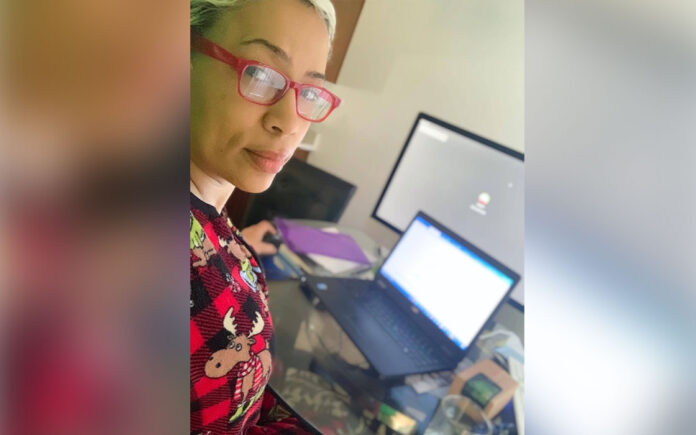
Chida Rebecca | California Black Media
The coronavirus crisis has forever changed how we think about, host, attend and experience events.
Michelle Johnson, founder of Let’s Play Ultimate Events, and her team are among event producers, who have previously only engaged mostly in organizing and executing functions people attend in-person. Now, they find themselves at the forefront of a transition happening within an industry already experiencing rapid change. They are helping to comfortably shift event guests into our new virtual norm.
Established in San Diego in 2010, Let’s Play Ultimate Events began as a fun game night for friends that grew into a full-service events company specializing in a nostalgic game concept. As a minority, woman-owned special events company, Johnson sought to create an alternative to the “same old bar scene.” When Johnson moved to Los Angeles to attend UCLA, she took Let’s Play Ultimate Events with her, adding a scholarly touch to her event productions.
Says Johnson, “But it takes a certain personality that can bring people into something where they’re engaged and not just watching.”
Now an alumna of UCLA, Johnson serves as the university’s Black Alumni Association president. Just as they were making radical changes within the company to take on virtual work outside of in-house projects, an opportunity presented itself.
A dear friend connected to the association, Vincent Boyce, had passed from COVID-19. “He was a Mason; a member of Phi Beta Sigma; and he was also a UCLA [alumnus]. So, the idea that only 10 people would be able to be at his service was something I just couldn’t fathom. You know, there were too many people that I knew personally that would want something to say or to be there in person.”
Johnson immediately reached out to those connected to Boyce to see if a virtual memorial could be held. “The family was open to it,” she said.
The virtual memorial captured the entire service – from the viewing of the deceased to shots of the pews and those in attendance. Those engaging online were getting a broader view than those in attendance, but even in their physical absence, Johnson ensured they were able to offer virtual condolences to the family. “It’s a heartbreaking thing … this is reality,” she said. “There are people who don’t make it to a funeral because they can’t afford it.” So, for someone to be able to say goodbye to a relative or friend, virtually, makes a difference.
An African American owned mortuary that Johnson is working with was dealing with an onslaught of business as a result of COVID-19. “You would think that he’d be happy about that, but he was actually very distressed because he said, out of all the nationalities, our people were the main ones who needed the service. They want to touch the body; they want to come in and pick the coffin — they want to do all those things. To be able to give people a place to experience that mourning and keep them safe at the same time, he said, is an invaluable thing.”
With that feedback, Johnson knew they were doing the right thing in terms of the services they were offering. Johnson says while most people were indoors panicking about the restrictions, she was in front of her computer saying “What do we do? How do we make this happen? Fortunately, I had the understanding of the platforms and my partners had their own expertise.”
Death is inevitable, and, because Johnson was able to trust in her foresight and that of her team, new opportunities materialized at their fingertips.


